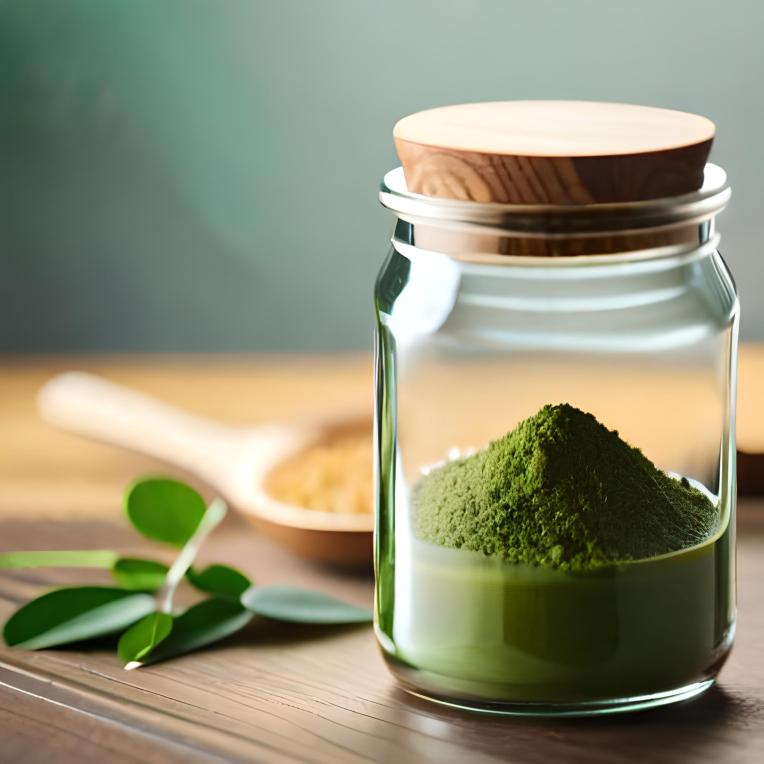Is stevia and sugar free same ?
Introduction-Is stevia and sugar free same
Stevia is a sweetener that comes from a plant. It’s a healthier option than sugar because it has no calories.
Sugar-free contains an artificial sweetening substance instead of actual sugar.
Is stevia and sugar free same ?
NO!, It’s not same. Stevia is a particular sweetener derived from a plant. It is a sugar replacement, not all sugar-free products use stevia. where as Sugar-free mainly refers to the absence of sugar but may include artificial sweeteners.
Understanding Stevia
Stevia is a sweetener derived from the leaves of the Stevia rebaudiana plant. It gives a herbal alternative to sugar, presenting excessive sweetness with out the energy. It is regularly used as a sugar substitute in diverse food and beverage merchandise, attractive to those in search of a more fit choice.
Natural Origin, Processing , Health Benefits
Stevia has a herbal origin, as it is extracted from the leaves of the Stevia rebaudiana plant, that is local to South America. The leaves go through a process where they are dried and steeped in water, and then the candy compounds are extracted and purified to create stevia as a sweetener. It may useful resource in weight management, help manipulate blood sugar tiers, and be beneficial for individuals with diabetes or the ones seeking to lessen sugar consumption. so understand the question that Is stevia and sugar free same ? read full article.
Forms of Stevia (Dried leaves, liquid extract and powder extract)
Stevia is available in exceptional forms such as powder, liquid, and dried leaves. Stevia powder is a concentrated shape that can be used for baking and cooking. Liquid stevia is a convenient choice for adding sweetness to drinks and recipes. Stevia extract is a noticeably focused shape utilized in small amounts to reap preferred sweetness.
Definition of Sugar-Free
Sugar-free refers to products that contain less than 0.5 grams of sugar per serving. It indicates the absence of added sugars or sweeteners, including natural sugars like sucrose, fructose, or lactose. These products may still contain small amounts of sugar alcohols or artificial sweeteners as alternatives to sugar.
Various Sugar Substitutes
There are numerous sugar substitutes available that can be used as alternatives to standard sugar. Here are a few usually used ones:
Stevia: A herbal sweetener derived from the leaves of the Stevia rebaudiana plant. It is known for its excessive sweetness and zero-calorie content material.
Erythritol: A sugar alcohol discovered certainly in end result and has a comparable flavor to sugar. It presents sweetness with fewer calories and minimal impact on blood sugar tiers.
Xylitol: Another sugar alcohol that occurs certainly in fruits and veggies. It has a sweetness just like sugar and is often used in dental products because of its useful effects on oral health.
Monk Fruit Extract: Derived from the monk fruit, this sweetener has zero calories and is a good deal sweeter than sugar. It is gaining reputation as a natural sugar replacement.
Aspartame: An synthetic sweetener generally used in low-calorie or sugar-loose merchandise. It is intensely sweet and presents negligible calories.
Sucralose: An synthetic sweetener that is about 600 times sweeter than sugar. It is commonly utilized in processed foods and drinks advertised as sugar-unfastened or weight loss plan.
Saccharin: An synthetic sweetener with zero calories. It has been used for many years and is located in numerous sugar-free merchandise.
These sugar substitutes offer special degrees of sweetness and may be used in numerous recipes and liquids as alternatives to sugar, catering to one of a kind nutritional desires and possibilities.
Sugar Alcohol vs. Artificial Sweeteners
Sugar alcohols are a form of sweetener commonly used as alternatives to sugar. They are derived from herbal resources like fruits or manufactured thru a method. Examples of sugar alcohols encompass erythritol, xylitol, and sorbitol. They have a candy taste and are often utilized in sugar-free products. Sugar alcohols offer fewer energy than sugar and feature a minimal impact on blood sugar stages. They could have a cooling effect and may purpose digestive problems in some individuals if ate up in big quantities.
Artificial sweeteners, as the name shows, are artificial sugar substitutes. They are chemically produced and may be intensely sweet, requiring smaller amounts for the equal level of sweetness as sugar. Common artificial sweeteners encompass aspartame, saccharin, and sucralose. Artificial sweeteners offer little to no calories and do no longer drastically effect blood sugar degrees. They are usually utilized in sugar-unfastened or food plan products. However, some people may additionally have sensitivities or worries concerning the lengthy-term outcomes of artificial sweeteners, so moderation is recommended.
Usage and Applications
Incorporating Stevia in Daily Life
Incorporating stevia into your every day existence may be a easy and wholesome desire. Start with the aid of substituting stevia for sugar for your drinks like coffee, tea, or smoothies. Use it in baking recipes to lessen sugar content material. Sprinkle stevia on end result, yogurt, or cereal for delivered sweetness. By making stevia part of your routine, you could experience a deliciously candy taste whilst reducing back on calories and sugar consumption.
Considerations and Precautions
While artificial sweeteners are generally considered safe for consumption, they can potentially cause side effects and allergies in some individuals. Common side effects include digestive issues such as bloating, gas, and diarrhea, especially when consumed in large amounts. Some people may also experience headaches, dizziness, or allergic reactions like skin rashes or itching. It’s important to be mindful of your body’s response and consult a healthcare professional if you have concerns or experience any adverse reactions after consuming artificial sweeteners.
Regulatory Standards and Approvals
In India, the Food Safety and Standards Authority of India (FSSAI) regulates the use of artificial sweeteners and stevia as food additives. The FSSAI conducts thorough evaluations to ensure their safety before approving their use.
Artificial sweeteners like aspartame, sucralose, and saccharin undergo extensive toxicological studies and assessments to determine safe consumption levels. Once approved by the FSSAI, these sweeteners can be used in various food and beverage products.
Stevia, a natural sweetener, has also received approval from the FSSAI. Stevia extract and its high-purity steviol glycoside derivatives are permitted as tabletop sweeteners and can be used as ingredients in different food and beverage items.
These regulatory standards and approvals by the FSSAI ensure that artificial sweeteners and stevia meet safety requirements in India. Adhering to recommended consumption guidelines and seeking professional advice can help address any concerns regarding their use.
Safe Usage Guidelines
The WHO’s Joint Experts Committee on Food Additives has additionally approved a suitable each day intake of steviol glycosides of up to 4 mg/kg of body weight.
In the United States, excessive-purity stevia glycoside extracts have been generally diagnosed as secure on account that 2008 as in step with Food and Drug Administration (USA). The European Food Safety Authority also approved stevia components in 2011. In November 2015, Food Safety and Standards Authority of India (FSSAI) allowed the use of steviol glycosides as a sweetener in food products.
Overall, stevia is accredited for consumption as a sweetener in over a hundred thirty international locations.
Conclusion -Is stevia and sugar free same ?
In conclusion, it is important to understand that stevia and sugar-free are not synonymous, although they are often related. Stevia is a plant-derived sweetener known for its high sweetness and zero-calorie nature. On the other hand, sugar-free products indicate the absence of added sugar or natural sugars. While stevia is commonly used as a substitute for sugar in many sugar-free products, it is crucial to recognize that not all sugar-free items contain stevia. By being aware of this distinction, individuals can make informed decisions regarding sugar alternatives and effectively manage their sugar intake.


